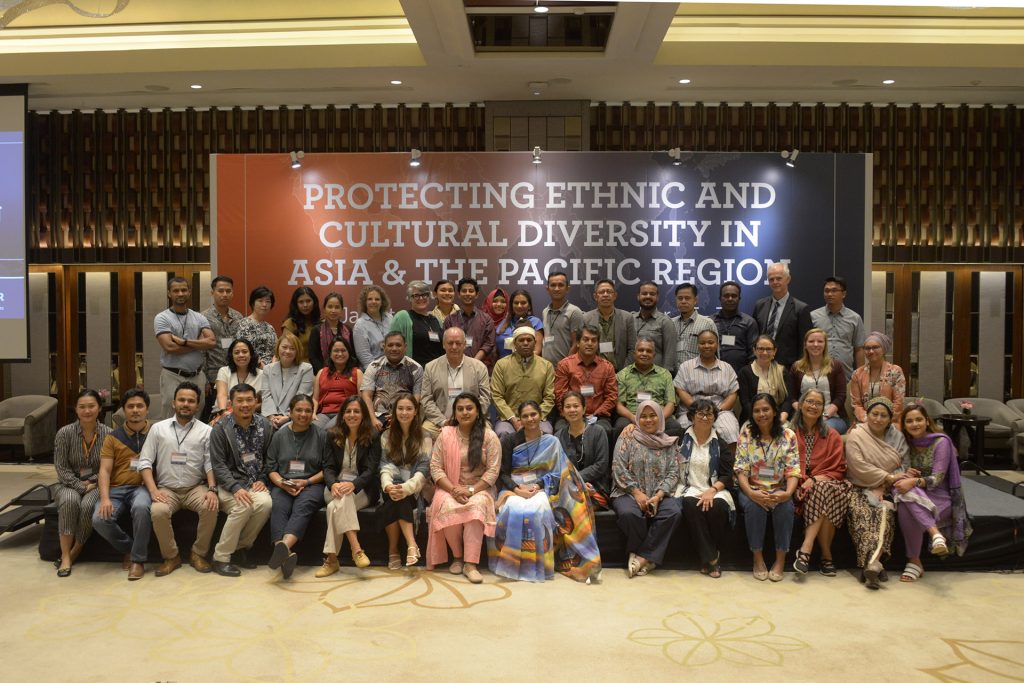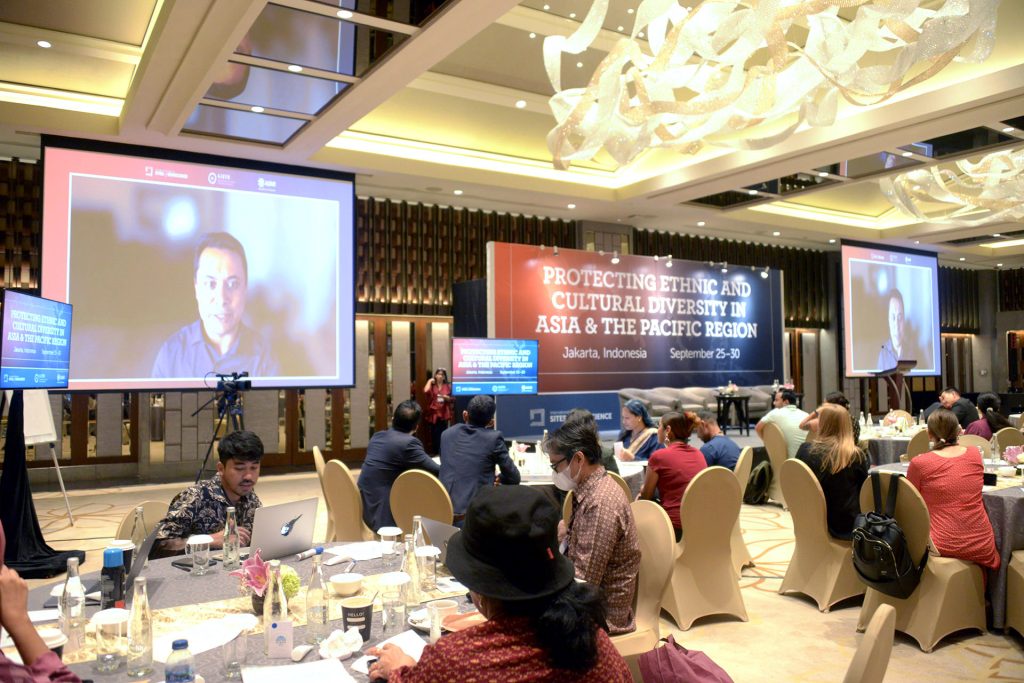From 25 to 30 September 2022, Asia Justice and Rights (AJAR), the International Coalition of Sites of Conscience (ICSC), and the Global Initiative for Justice, Truth, and Reconciliation (GIJTR) held an international summit on “Protecting Ethnic and Cultural Diversity in the Asia and Pacific Region” in Jakarta, Indonesia. This summit highlighted the continuing Rohingya crisis in the face of Myanmar’s military-backed violence, and focused on the challenging conditions in the refugee camps of neighbouring countries.
This summit addressed the need for civil society to actively participate and strengthen its network in order to support the implementation of existing international legal instruments, such as the International Covenant on Civil and Political Rights (1966) and the UN Declaration on the Rights of Persons Belonging on National or Ethnic Minorities. These international legal instruments can provide a foundation in the fight for ethnic minorities’ rights, acting alongside civil society organisations’ advocacy for the protection of minority groups, especially the most vulnerable amongst these groups such as women and children.

The “Protecting Ethnic and Cultural Diversity in the Asia and Pacific Region” Summit fulfilled the following objectives:
- Identified and discussed the challenges and threats to the civil, political and human rights of minority groups across the Asia-Pacific Region.
- Identified ways to advocate for the rights of ethnic and cultural minorities in the Asia-Pacific region.
- Discussed strategies that institutions and civil society can develop to protect ethnic and cultural minorities.
- Analyse the case study of discrimination and violence against the Rohingya, and a regional project to develop a Rohingya Oral Archive in order to contribute to the memorialization and solidification of their identity by reconstructing the memory of their past.

The event was attended by 67 participants from 20 different countries, and members of various regional networks shared their experiences in combating threats to human rights in the region. The summit consisted of two main sessions: the roundtable as well as the bilateral discussion. The attendees shared their methods of advocating for the rights of ethnic and cultural minorities, and strategies used to strengthen institutions and civil society groups working on transitional justice initiatives, whether these be formal or informal. One of the prominent results of this summit is the Munir Human Rights Museum joining the international networks of rights and memory initiative as an additional means to expand their networks.
As a result of the summit, regional coalitions and networks connected with new partners to develop future strategic approaches to ensure successful transitional justice initiatives in their area of work.